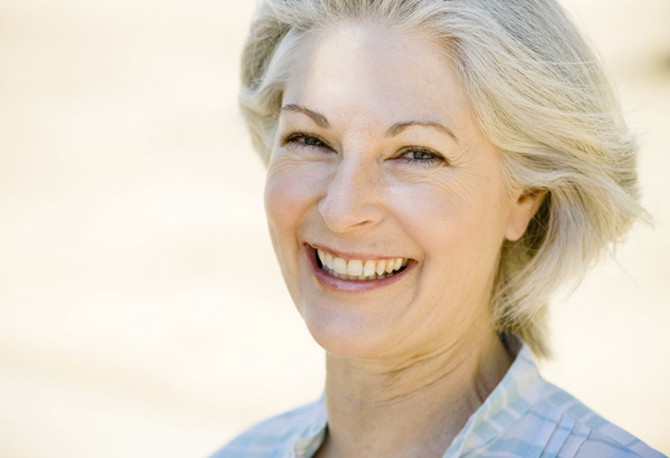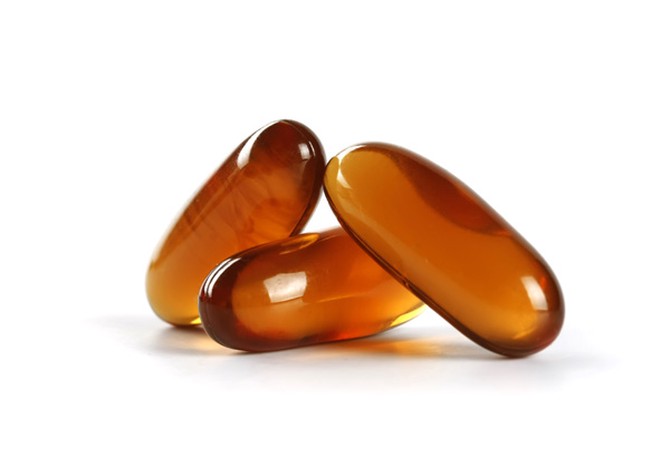Stay Young for Longer: What the RealAge Test Can Tell You
Scientific research brings new meaning to an all-new RealAge Test—and why it's critical to reassess your live younger plan.
By RealAge

Photo: iStockphoto/Thinkstock
What Keeps You Young?
More than a decade ago, an internist named Michael Roizen, MD, had a light-bulb idea: He was sure there was a way to calculate a number that represented not your calendar age, but how fast your body actually ages—your body's "RealAge."
He was right—it just wasn't easy. At that time, researchers were just beginning to learn how individuals have a certain amount of power over the ways their genes affect their lives. Five years and tens of thousands of medical studies later, Dr. Roizen and a team that included Keith Roach, MD (now chief medical officer of RealAge) had not only pinpointed which key factors make you physically older or younger—from vitamin E and your parents' genes to whether you floss—but had also figured out how much older or younger each one makes you. When the RealAge test was launched, Oprah said, "You've got to take it."
Fast forward to today. The RealAge Test has just received its first major scientific update. If you're one of the 27 million who've taken it, odds are your RealAge has changed. Are you younger (or older) than you think?
He was right—it just wasn't easy. At that time, researchers were just beginning to learn how individuals have a certain amount of power over the ways their genes affect their lives. Five years and tens of thousands of medical studies later, Dr. Roizen and a team that included Keith Roach, MD (now chief medical officer of RealAge) had not only pinpointed which key factors make you physically older or younger—from vitamin E and your parents' genes to whether you floss—but had also figured out how much older or younger each one makes you. When the RealAge test was launched, Oprah said, "You've got to take it."
Fast forward to today. The RealAge Test has just received its first major scientific update. If you're one of the 27 million who've taken it, odds are your RealAge has changed. Are you younger (or older) than you think?

Photo: iStockphoto/Thinkstock
Are You Younger Than Your Driver's License Says?
The science behind the test has been revisited and—where needed—revised. Some things have changed a lot (vitamins), some not at all (smoking, except that it's now clear that breathing secondhand smoke is as bad as lighting up). The RealAge team brought the test "up to scientific speed," Dr. Roach says. "For instance, based on the latest data, we've found that a good attitude is a good thing; that vitamin D has usurped E; and that the 'big 3 agers'—blood pressure, cholesterol, diabetes—are even bigger [factors]."

Photo: iStockphoto/Thinkstock
An Optimistic Attitude Is More Than a Platitude in the Live-Longer, Feel-Great Debate
Are you a glass half-empty or half-full kind of person? Optimism, hostility, and anger all affect how old your body thinks you are, and their effect is bigger than most experts suspected even a few years ago. It's now clear that optimists deal with bad things in healthier ways, which may lead to less aging, skin-wrinkling, health-sapping stress. All this could add up to making your RealAge nearly 6 years younger. Optimists also build stronger personal relationships. That brings us to…

Photo: iStockphoto/Thinkstock
Best Friends Can Keep You Young
Do you have friends you can speed-dial (no hesitations) during a 3 AM crisis? People who'll listen patiently while you vent about your computer crash or crazy in-laws? BFFs you can be totally yourself with and vice versa? Recent studies suggest that having close connections—being a people person—helps you cope better in general. When the going gets tough, friends actually make your blood less likely to clot and lower your risk of a heart attack. In the old test, having bosom buddies was only critical during super-stressful life events, like a partner's death. "Now," Dr. Roach says, "[we realize] having friends is important for everybody; they help you handle all levels of stress," including what Dr. Roizen calls "NUTS"(nagging unfinished tasks).

Photo: iStockphoto/Thinkstock
Update Your Vitamins, Lower Your Age
Not long ago, many people were popping antioxidants—vitamins A, C and E, selenium, and several other nutrients—with abandon. Antioxidants were credited with fighting everything from heart disease and cancer to sniffles. No longer. The latest science suggests that big doses of these pills are duds. But shouldn't you still take a multivitamin? Probably not. "The current data show that multivitamins simply don't help most people," Dr. Roach says.
Meanwhile, some individual nutrients—particularly vitamin D3 and omega-3—have switched from bit players to likely all-stars. "Although the jury is still out on D's effect on heart disease, there's major new evidence supporting its ability to cut rates of breast and colon cancer, and nearly everybody agrees most Americans need extra vitamin D for their bones to prevent or treat osteoporosis," Dr. Roach says.
As for those omega-3 supplements, RealAge says you need them to keep your heart and brain young and healthy. That's because their top source is fatty fish (salmon, sardines, more), and Americans just aren't big fish eaters. To get 600-900 mg a day, the amount Dr. Roizen advises, supplements are often the only way.
Meanwhile, some individual nutrients—particularly vitamin D3 and omega-3—have switched from bit players to likely all-stars. "Although the jury is still out on D's effect on heart disease, there's major new evidence supporting its ability to cut rates of breast and colon cancer, and nearly everybody agrees most Americans need extra vitamin D for their bones to prevent or treat osteoporosis," Dr. Roach says.
As for those omega-3 supplements, RealAge says you need them to keep your heart and brain young and healthy. That's because their top source is fatty fish (salmon, sardines, more), and Americans just aren't big fish eaters. To get 600-900 mg a day, the amount Dr. Roizen advises, supplements are often the only way.

Photo: iStockphoto/Thinkstock
"Silent" Conditions Are Scarier and Way More Widespread Than They Used to Be
The "big three" agers haven't changed. They're high blood pressure, out-of-whack cholesterol, and diabetes. What has changed is that more people are in big trouble. For instance, "good" blood pressure used to be 120/80 and 130/85 was considered okay, Dr. Roach says. Today, no way. Good has been redefined to 115/75 or lower; 120/80 is heading for trouble, and 130/85 or higher is in the risky zone.
So the question is: How's yours? Few things age you as fast or dramatically as these stealthy threats, yet millions of people spend years unknowingly in the unhealthy range. Then one day trouble explodes in the form of anything from erectile dysfunction to a stroke.
So the question is: How's yours? Few things age you as fast or dramatically as these stealthy threats, yet millions of people spend years unknowingly in the unhealthy range. Then one day trouble explodes in the form of anything from erectile dysfunction to a stroke.

Photo: iStockphoto/Thinkstock
Why "What's for Dinner?" Matters So Much to Your Age
It happens all the time: The day gets crazy and suddenly your favorite restaurant or take-out place is the only dinner option. Trouble is, most menus are full of saturated fat, which adds to your RealAge, and low in whole grains and veggies, which has the opposite effect. Order smart. "One of the best things you can do to make your RealAge younger is to replace meat and processed foods with fish, skinless white meat poultry, vegetables, fruit and whole grains," Dr. Roach says.

Photo: iStockphoto/Thinkstock
A Sexy Love Life Keeps You Young
Orgasms don't just feel good, they are good for you—in ways the old test didn't acknowledge. Recent studies show that the surge of hormones (particularly a goodie called oxytocin) produced by arousal and climax leaves you feeling calm and relaxed. The increase in heart rate and blood flow are good for your organs and circulatory system. And for men, the evidence is pretty definitive that having multiple orgasms per week reduces risk of prostate cancer. Talk about fun ways to make your RealAge younger!
What's your new RealAge? Take the exclusive Oprah.com version of the RealAge test now!
What's your new RealAge? Take the exclusive Oprah.com version of the RealAge test now!
Published 02/23/2011

